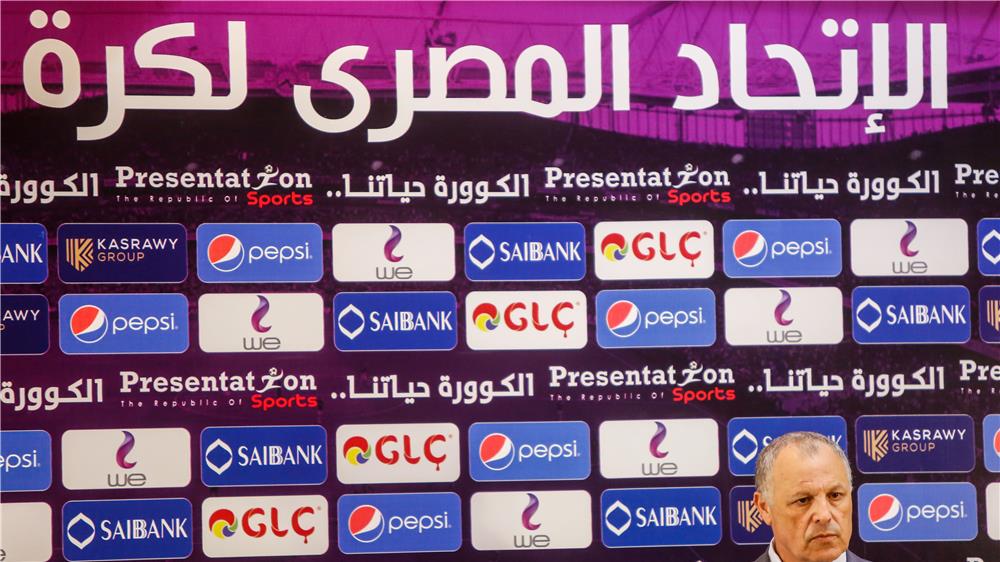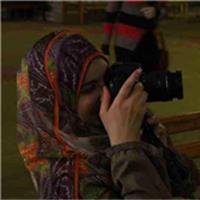في كواليس الصحافة يقع الصحفي بين مطرقة معلومة يتحمل مسؤوليتها بمفرده وربما أودت بمصداقيته، وسندان مصدر قد يستخدمه لتحقيق مآربه.. ليجد نفسه في نهاية المطاف يقف بمفرده وجها لوجه أمام جماهير تسأله وحده عن مسؤوليته في توعيتها أو تضليلها. لذا، احذر عزيزي الصحفي!
المصادر ليست طوقاً للنجاة تتمسك به لتصل إلى الشاطئ، فبعض المصادر تنتمي إلى جماعة رسمية أو نخبوية لها أهدافها ومآربها التي تتصل بالجماهير من أجل تحقيقها، إما لتوجيهها صوب وجهة تتبناها الجماعة ويمثلها المصدر، أو قد يمتد هدفها إلى ما هو أعمق من التوجيه لتنشد غرس تلك الرؤى بحيث تتبناها الجماهير، لا سيما تلك المصادر التي تكون لديها الخبرة الكافية لخداع الصحفيين والتلاعب بهم.
احذر ثقل مصدرك وقت الأزمات
احذر أن يهمس أحدهم في أذنك وقت اندلاع الأزمة قائلًا: "تلك معلومة خطيرة.. انشرها، ولكن لا تذكر اسمي"، فمهما كان ثقله وحجم الثقة في حديثه؛ تتحمل وحدك مسؤولية المعلومة، فاحذر أن تتصدع مصداقيتك بسبب مصدرك.
درس استفاده أحمد عبد العليم (صحفي سابق بقناة مصر25) بعد نشره معلومة عن مصدر مهم رفض التصريح باسمه عند النشر، ولم يتح للصحفي التأكد من صدق المعلومة، كما لم يتمكن من التيقن من كذبها إلى الآن.
يروي عبد العليم تجارب أخرى مع المصادر فيقول "خلال عشر سنوات من العمل الصحفي نمت علاقاتي بمصادر كثيرة. وفي عام 2011، أمدني مصدر بأحد أجهزة الدولة بمستندات تفيد بتورط الرئيس السابق لنادي قضاة مصر في الاستيلاء على أراضي الدولة في الساحل الشمالي، وكنت أتخذ منهج تعدد المصادر في القضايا المهمة والشائكة باعتباره سبيل تأكيد أو نفي المعلومات، وقد قابلت صعوبة كبيرة في تأكيد تلك المعلومة من داخل نادي القضاة بسبب إحكام سيطرة رئيس النادي عليه، فلم يكن هناك من يجرؤ على مس اسم هذا المستشار أو التعرض لذمته، لذا لجأت إلى عدد من القضاة كنت أعرفهم شخصيا، ثم إلى بعض قضاة المجلس الأعلى للقضاء، حتى تأكدت من صحة المستندات وصدق المعلومات التي جمعتها، فنشرتها".
في المقابل، أوقعه مصدر آخر في مأزق، إذ كان مصدرا قويا يعمل داخل أجهزة الدولة إبان أحداث يوليو/تموز 2013، وكان الصحفي عبد العليم يمنحه الثقة بسبب تعامله السابق معه، ولهذا، فقد نشر معلومة شديدة الحساسية عن انتقال أحد قيادات القوات المسلحة وأسرته إلى مطار ألماظة استعدادا لمغادرة البلاد. كان المصدر قد طلب منه عدم نشر اسمه بسبب حساسية الظروف في مصر وقتئذ، فنشر المعلومة على حسابه الشخصي على موقع فيسبوك دون الإشارة إليه، متحملا بمفرده مسؤولية المعلومة التي انتشرت بسرعة بسبب البيئة الخصبة للذيوع والانتشار التي كانت تتيحها ظروف البلاد لمثل هذا النوع من المعلومات، ليتبين لاحقا أن تلك المعلومة مغلوطة. مع هذا، لم يكشف عبد العليم عن اسم المصدر -حسب قوله- لأن "المسؤولية الأخلاقية ألزمتني بألا أكشف هوية المصدر الذي أمدني بها، خشية تعرضه للخطر بسبب وجوده داخل مصر آنذاك، كما أن تأخري في كتابة الاعتذار عن المعلومة -بسبب عدم قدرتي على التأكد من كذبها بشكل قاطع- قلّل من سرعة وصول الاعتذار وانتشاره".
ورغم مرور الزمن ونسيان الجمهور للحادث، يؤكد عبد العليم أنه "لو عادت بي الأيام لما نشرت تلك المعلومة لأن آثارها السلبية كانت كبيرة.. اعتبرها كثيرون شائعة من خيالي، واعتبرها آخرون تسريبا مخابراتيا متعمدا، بينما لم أجد أنا -ناشر المعلومة- أي أثر إيجابي لها على الجمهور، كما أن شرخ المصداقية يصعب علاجه".
المصادر في الإعلام الرياضي
وكما أن لكل لعبة رياضية قواعد تحكمها وتسيطر على خطوط السير فيها، فللصحافة الرياضية أيضا ما يحكم حركتها داخل السوق الإعلامي. ولعل أهم ما يحكمها أن "الرياضة مجال للقيل والقال والأخذ والرد، ليست مثل السياسة، فلا تشتمل منظومة (واحد - اثنان..) أو (ألف - باء)".. هكذا لخص أ.م الصحفي بأحد المواقع الرياضية المصرية وجود التلاعب بالمعلومات في مجال الإعلام الرياضي من واقع عمله الذي تجاوز الثلاثة أعوام في هذا المجال.
وأضاف: "استخدام المصادر للصحفيين في مجال الإعلام الكروي ذائع الانتشار، فهناك نماذج من لاعبي الكرة بالنوادي المصرية تستخدم الصحفيين لديها، ليضللوا وينتقلوا من نادٍ إلى آخر، ويرفعوا أسعارهم أويضربوا منافسيهم".
ويكمل أ.م الحديث عن آلية استخدام اللاعبين للصحفيين فيقول: "يروج كثير من اللاعبين لعروض انتقالات غير حقيقية بهدف رفع المقابل المادي الذي يحصلون عليه من أنديتهم، وبالفعل يخشى النادي مغادرة اللاعب للفريق متأثرا بالأخبار التي يروجها اللاعب نفسه ويلبي مطالبه صاغرا".
وأكد أن ذلك يجعل كثيرا من الأخبار المتداولة على الساحة الرياضية غير صحيحة. وما يزيد الأمر سوءا أن هذه المعلومات لا يمكن كشف صدقها من عدمه، حيث يكون المصدر المجهول هو كلمة السر المستخدمة في ذلك، باستخدام صيغ مثل: "أفاد مصدر، أو أشارت تقارير..".
فالصحفي واللاعب يحرصان على إخفاء علاقتهما ليقوم كل منهما بدوره، فينشر الصحفي ما أملاه اللاعب باعتباره سبقاً صحفياً ينتشر كالنار في الهشيم داخل أروقة الرياضة، قبل أن يأتي دور اللاعب ليستفيد من ذلك في خلق مناخ ضاغط على ناديه الذي يستجيب لما يطلبه خشية أن يواجه بهياج الجماهير، لا سيما مع وجود المنابر الخاصة باللاعبين التي أتاحتها وسائل التواصل الاجتماعي (فيسبوك وتويتر وإنستغرام) بينهم وبين الجماهير، التي قد تحركها بعض الشائعات المبنية على معلومات كاذبة يختلقها اللاعب لتحقيق مصالحه ويروجها باستخدام الصحفي.
ويضيف أ.م: "بالمثل، تستغل إدارات النوادي صحفييها في خداع وتضليل الجمهور لتحقيق مآربها، وقد حدث ذلك مع ناد شهير استخدمت إدارته بعض صحفييها لتشويه سمعة لاعب لإفقاده الجماهيرية تمهيدًا للاستغناء عنه.
وعن ثقافة الاعتذار عن المعلومة الكاذبة في الإعلام الرياضي، يقول أ.م: "في حدود خبرتي ومتابعتي.. هذا لم يحدث، ففي الإعلام الرياضي يكون اللعب على تعصب الجماهير هو المحك الأساسي للعمل وليس صدق المعلومات من عدمها".

ارفع درجة الحذر للحالة القصوى
عزيزي الصحفي في وكالات الأنباء.. أنت مصدر المعلومات لكثير من المنابر الإعلامية، تتعامل مع المادة الخام لكل الفنون الصحفية، لذا ارفع درجة حذرك إلى الحالة القصوى، فأنت تسير على جسر من الأشواك.
نصيحة اتبعها ربيع أبو زامل الصحفي بوكالة الأناضول للأنباء خلال 5 سنوات قضاها كصحفي إخباري، يرى فيها أن علاقته ببعض مصادره تعمقت حتى أصبحت مصادر ثقة، إلا أنه أقر باكتشافه كذب مصادره عدة مرات قبل النشر من خلال الرجوع إلى مصادر أخرى.
لذا كان في اتباع المنهج الديكارتي في الشك سبيل نجاة بالنسبة له.. يقول أبو زامل: "دائما ما يكون الشك في حديث المصدر -سواء كان من النخبة أو مصدرا رسميا- من الأساسيات التي ينبني عليها عملي، ذلك أنه في ظل حالة الاستقطاب الحالية، كثيرا ما يحاول المصدر استغلال الصحفي في نشر وجهة نظره، ولكن تبقى مهنية الصحفي هي سلاحه في التعامل مع استغلال المصادر".

ويواصل حديثه: "وفي الأخبار المهمة والحساسة بصفة خاصة، يكون تنوع المصادر وتعددها سبيلي للوصول إلى معلومة دقيقة، ولعل ذلك ما يزيد ضغط عامل الوقت عليّ، ويزيد صعوبة معادلة (الدقة + السرعة)، إلا أن العمل الوكالي يقتضي أن توضع الدقة قبل السرعة على سلم الأولويات، وعليه لا تُنشر معلومة إلا عن مصدرها الأصلي".
يسمح أبو زامل بنشر بعض المعلومات وتجهيل مصدرها بناءً على طلب المصدر نفسه، إلا أنه يحتفظ لنفسه بتسجيل أو مستند يؤكد نسبة المعلومة إلى مصدرها درءًا للمسؤولية القانونية.
مع هذا، يشير أبو زامل إلى الاستثناء في القاعدة حين "يتخلى صحفي الوكالات الإخبارية عن منهجه الحذر في التعاطي مع الأخبار والمعلومات التي يمكن أن تشكل انفرادات، فينشر المعلومة مباشرة فور تلقيها من المصدر دون مراجعة، مع إعطاء جميع الأطراف حق الرد إن كان للخبر أطراف متعددة"، معلّلا ذلك بالقول "أولًا وأخيرا هي معلومة متاحة نعرضها في سياقها العام وخلفياتها، مع إتاحة الفرصة أمام الأطراف الأخرى للرد".
وهو في ذلك مثل كثير من الصحفيين يستند إلى قاعدة مفادها -كما يقول- "أن مسؤولية الصحفي تتوقف حين يعتمد على مصادر معروفة، ويملك أدواته كأن يسجل مكالمته مع المصدر أو يملك مستندًا حول كلام المصدر أو الخبر في حال تكذيب الخبر أو المعلومات من المصدر، وفي حال تكذيب المعلومة المنشورة يكون تصحيح الخبر هو الاعتذار الذي يقدمه لقرائه".
في كل الأحوال، تبقى مهنية الصحفي وضميره الضمانَ الحقيقيَّ لصدق العمل، وهو ما يفرض عليه حين يبحث عن معلومة تهديه السبق أو الانفراد؛ أن يتيقن من دقتها ويحسن اختبار مصداقية مصدرها.








































